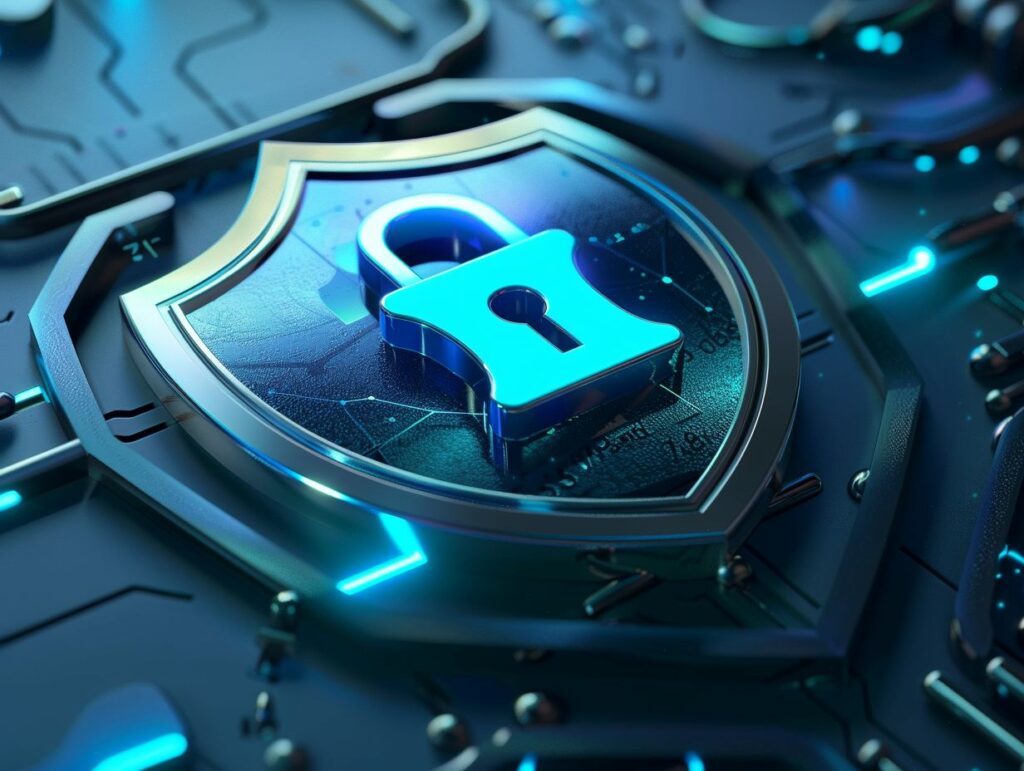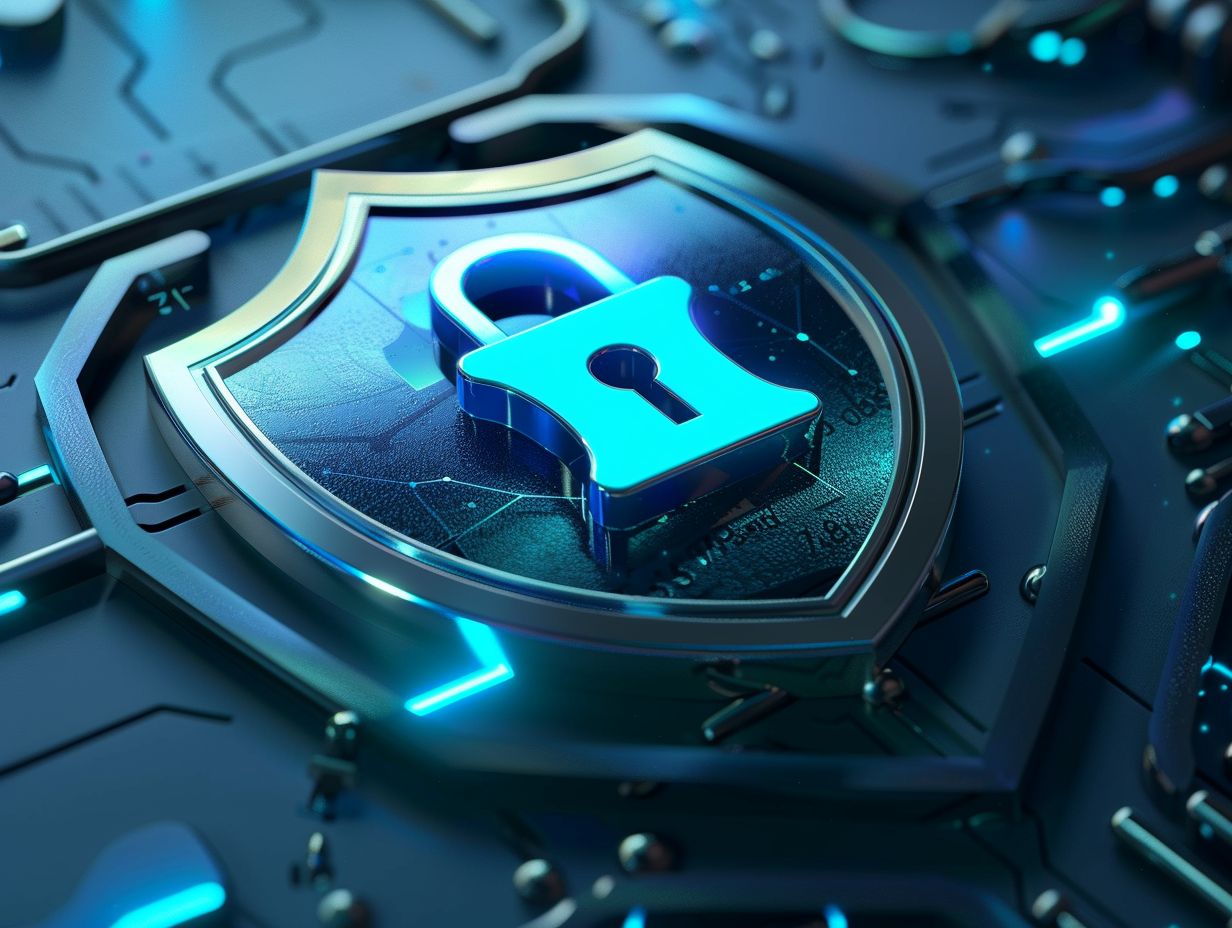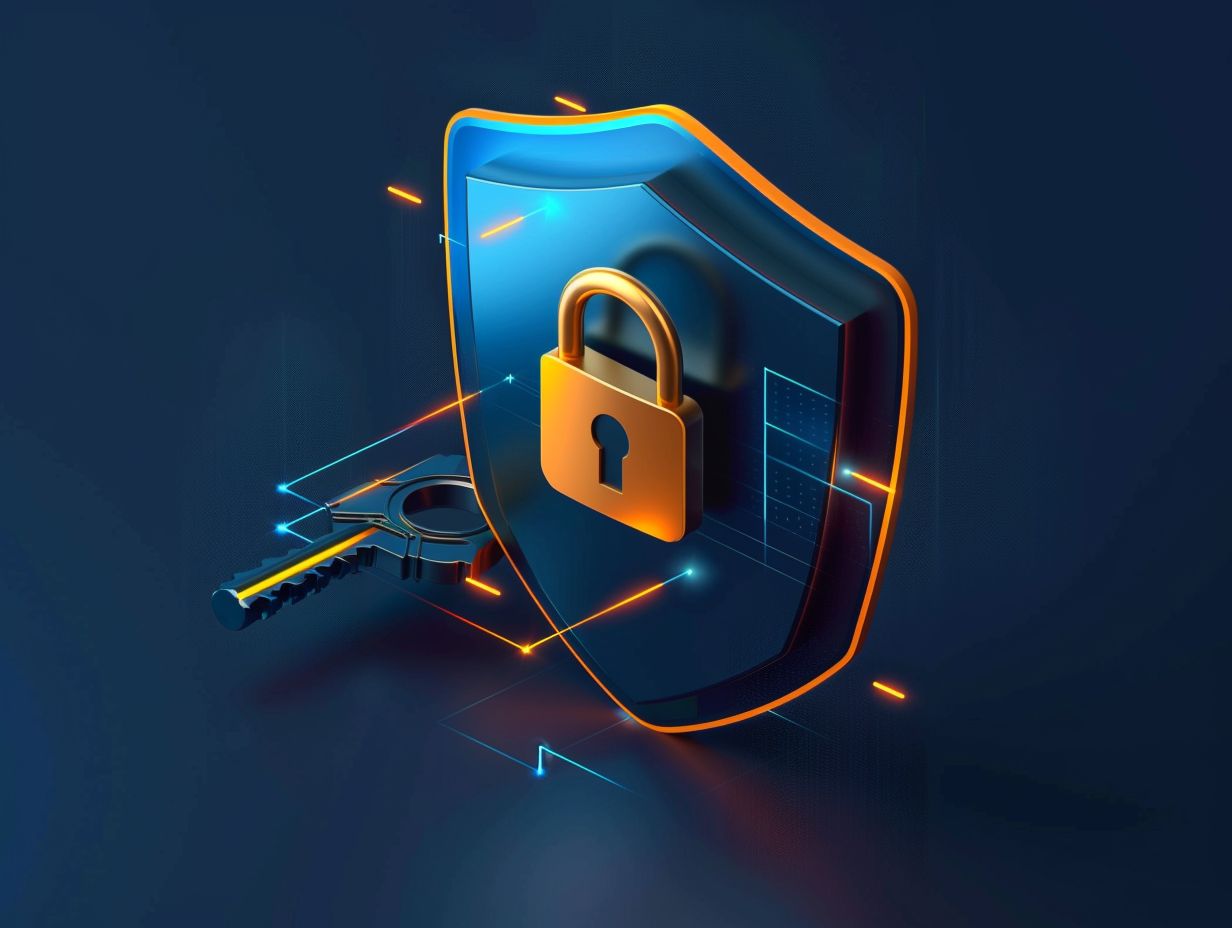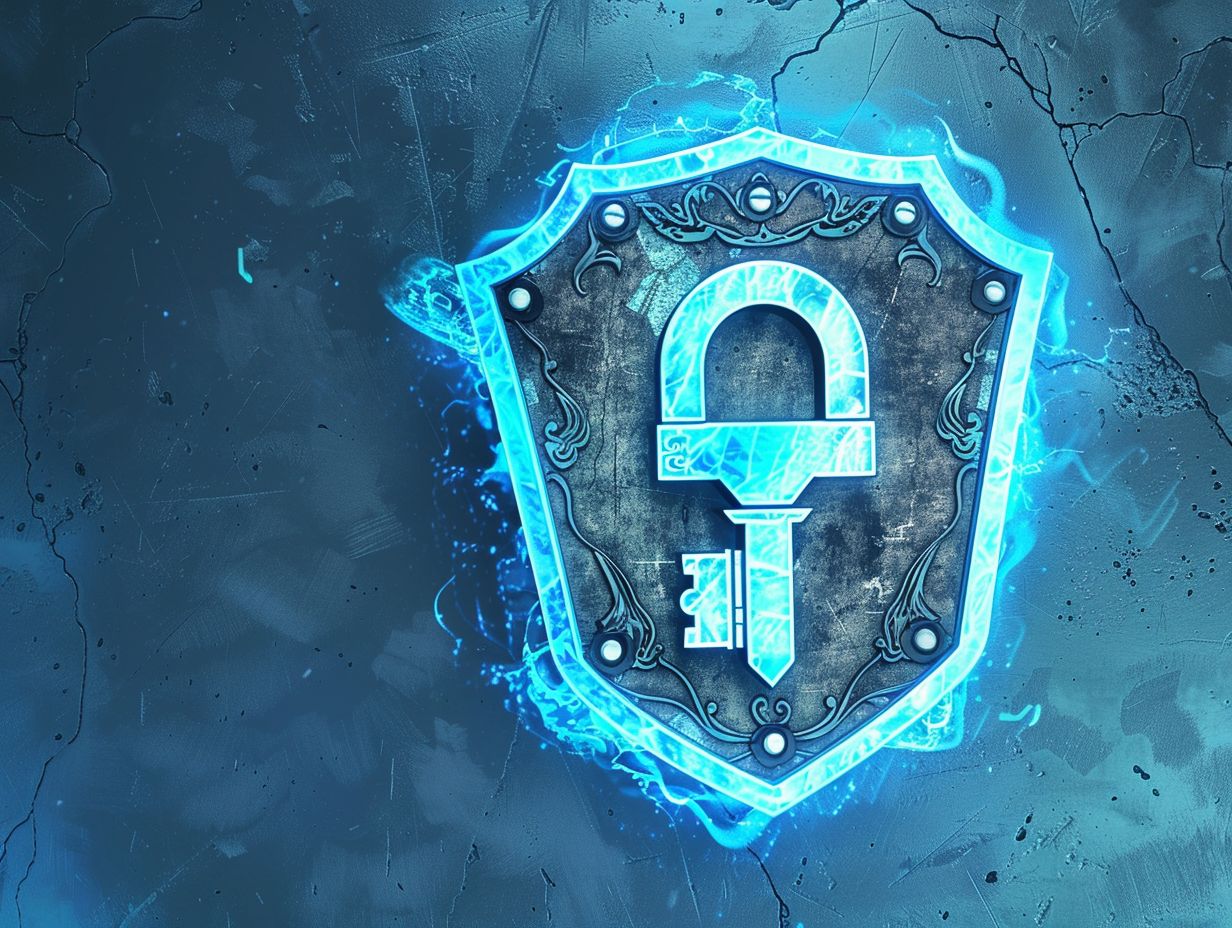In today’s digital age, protecting your online content is crucial to safeguarding your intellectual property.
Florida has specific laws and regulations in place to protect online content, including the Florida Uniform Trade Secrets Act and the Florida Deceptive and Unfair Trade Practices Act.
By taking steps such as registering your copyright, using watermarks, and monitoring your rights, you can prevent the loss of revenue and damage to your reputation.
Discover how to protect your online content from plagiarism and the consequences of not doing so in Florida.
Key Takeaways:
- Protecting your online content is crucial to prevent loss of revenue, damage to reputation, and potential legal action in Florida.
- Understand the laws and regulations in Florida, such as the Florida Uniform Trade Secrets Act, to effectively protect your online content.
- Steps to protect your online content in Florida include registering your copyright, using watermarks or digital signatures, and including a Terms of Use agreement.
What Are the Steps to Protect Your Online Content in Florida?
To protect online content in Florida, it is important to follow certain steps. These steps include:
- Registering copyright
- Using watermarks or digital signatures
- Including a Terms of Use agreement
- Actively monitoring and enforcing rights to ensure compliance
1. Register Your Copyright
Registering a copyright is a foundational step in safeguarding your online content, providing legal recognition and protection under Florida laws.
To register a copyright for your online content, you need to submit your work to the United States Copyright Office, where it will be officially acknowledged and recorded. This process not only establishes a public record of your ownership but also grants you important legal rights, such as the capacity to take legal action against individuals or entities that violate your copyright.
By obtaining copyright registration, you acquire the ability to pursue damages and statutory damages in court, giving you a more robust means of upholding your rights and safeguarding your intellectual property.
2. Use Watermarks or Digital Signatures
Incorporating watermarks or digital signatures into online content can discourage unauthorized use and help safeguard your intellectual property.
Watermarks are a commonly utilized method for visibly marking images or documents with unique identifiers, such as logos or text, clearly indicating ownership or licensing of the content. On the other hand, digital signatures utilize encryption techniques to add an invisible layer of protection, verifying the creator’s authenticity and ensuring content integrity.
Both these methods serve to deter potential infringers and can also function as evidence in copyright disputes, simplifying the process of proving ownership and safeguarding your creative work.
3. Include a Terms of Use Agreement
Including a Terms of Use agreement on a website or online service establishes clear guidelines for users, ensuring compliance and protecting the content.
The agreement functions as a legal contract between the website owner and users, outlining the rules and responsibilities for interacting with the platform. By clearly defining expectations regarding acceptable behavior, content usage, and privacy policies, a well-crafted Terms of Use agreement can help prevent misunderstandings and disputes.
It also safeguards intellectual property rights by specifying how users can engage with the content and what actions constitute infringement. This proactive approach not only enhances the user experience but also establishes a foundation for a transparent and secure online environment.
4. Monitor and Enforce Your Rights
Vigilant monitoring and enforcement of rights are essential for safeguarding online content, ensuring adherence to regulations, and addressing any legal issues that may arise.
One effective approach to monitoring online content involves utilizing digital tools and software capable of tracking unauthorized use of your content. These tools commonly utilize sophisticated algorithms to scan various websites and platforms for potential instances of infringement.
Establishing Google Alerts or utilizing online monitoring services can aid in promptly identifying instances of copyright violation. Upon detecting unauthorized use, it is crucial to take swift enforcement actions, such as issuing cease and desist letters or submitting takedown notices. These actions are necessary to uphold your rights and comply with copyright laws and regulations.
What Are the Consequences of Not Protecting Your Online Content in Florida?
Not safeguarding online content in Florida can result in serious outcomes, such as revenue loss, harm to reputation, and the possibility of legal repercussions, affecting both individuals and businesses.
1. Loss of Revenue
One of the most significant consequences of failing to protect online content is the potential loss of revenue resulting from unauthorized use or duplication of the work. This unauthorized use can lead to financial losses as others profit from the hard work without permission.
When online content is not secured, individuals or entities may exploit it for their gain, diminishing the value of the intellectual property. Protecting revenue streams is crucial to safeguard creative endeavors and maintain brand integrity.
By implementing strategies to secure online content and intellectual property, such as copyrighting, licensing agreements, and digital rights management tools, the risk of revenue leakage can be minimized, ensuring that the work remains a valuable asset in the digital landscape.
2. Damage to Reputation
Unauthorized use or misrepresentation of online content can have a detrimental impact on reputation and brand image, highlighting the importance of implementing protection measures.
Failure to protect digital assets can result in negative perceptions and a loss of audience trust. For example, consider a situation where someone plagiarizes a blog post or uses an original design without permission.
This not only diminishes the value of the work but also creates uncertainty among consumers regarding the authenticity of the brand. Such actions can harm credibility and create hesitation among potential customers in interacting with products or services.
Monitoring and addressing unauthorized use is essential to maintain reputation in the online realm.
3. Legal Action
Failure to protect your online content can expose you to legal action due to issues related to unauthorized use or infringement.
This lack of safeguarding your digital materials could lead to severe outcomes, including lawsuits, substantial fines, and a range of legal difficulties. Law enforcement plays a vital role in probing copyright violations and intellectual property theft, which may result in significant penalties if violations are proven.
It is crucial for individuals and businesses to give priority to safeguarding their online assets to prevent potential legal issues and uphold the integrity of their intellectual property rights.
How Can You Protect Your Online Content from Plagiarism?
Safeguarding online content from plagiarism is crucial, and various strategies can be utilized, such as utilizing plagiarism detection tools, incorporating a copyright notice, and pursuing legal measures against plagiarists.
1. Use Plagiarism Detection Tools
Utilizing plagiarism detection tools is a proactive measure in safeguarding online content. These tools assist in verifying originality and identifying any unauthorized usage.
The process involves these tools scanning the content and comparing it to an extensive database of existing works and websites. They employ sophisticated algorithms to detect similarities, including paraphrased content and inadequate citations. Plagiarism detection tools such as Turnitin, Grammarly, and Copyscape are commonly used by educators, writers, and website administrators.
By making use of these tools, individuals and organizations can confirm the authenticity of their work and mitigate the risk of unauthorized copying. These tools generate comprehensive reports that highlight potential areas of concern, enabling users to make necessary edits and revisions before publication.
2. Include a Copyright Notice
Including a copyright notice on online content serves as a legal warning to potential infringers and reinforces rights to the content.
By clearly displaying a copyright notice, others are essentially informed that the content is protected by copyright law. This can act as a deterrent to those who may attempt to use the work without permission.
An effective copyright notice usually includes the symbol © or the word ‘Copyright,’ the year of publication, and the name of the copyright owner. Placing this notice prominently on a website, blog, or digital creations not only protects intellectual property but also helps establish ownership in case of a legal dispute.
3. Take Legal Action Against Plagiarists
Initiating legal action against plagiarists is a necessary step to enforce rights and protect online content from unauthorized use. By pursuing legal proceedings, ownership over work is asserted, sending a message that plagiarism will not be tolerated.
Through the legal system, individuals or entities found guilty of copyright infringement may be required to cease using content, pay damages, and issue public apologies. These outcomes not only vindicate rights but also deter others from engaging in similar unethical behavior.
Frequently Asked Questions
What is considered online content in Florida?
Online content in Florida refers to any digital material that is created and shared on the internet, such as blog posts, videos, photos, and social media posts.
Why is it important to protect my online content in Florida?
Protecting your online content in Florida is important because it helps prevent others from using or stealing your original work without your permission, which can result in loss of revenue and damage to your reputation.
What are my legal rights to protect my online content in Florida?
In Florida, you have the legal right to protect your online content through copyright law, which grants you exclusive rights to your original work and allows you to take legal action against anyone who infringes on those rights.
How can I protect my online content in Florida from being stolen?
You can protect your online content in Florida by using watermarks on your photos and videos, adding copyright notices on your website and social media platforms, and registering your work with the U.S. Copyright Office.
What should I do if I find someone has stolen my online content in Florida?
If you find someone has stolen your online content in Florida, you should first contact the person directly and ask them to remove the stolen material. If they refuse, you can send a cease and desist letter or take legal action with the help of a lawyer.
Are there any online content protection laws specific to Florida?
While there are no specific laws for protecting online content in Florida, the state does follow the federal copyright laws, which provide adequate protection for all types of digital material.


























Rate this article:
No Comments yet!